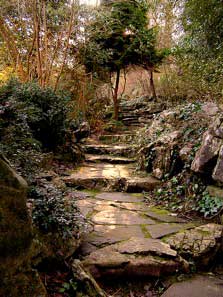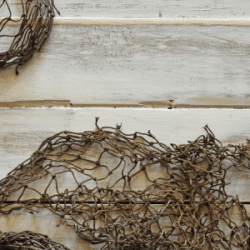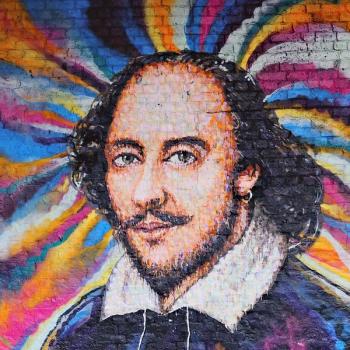By RuneWolf
 To say that I converted to Paganism would be somewhat inaccurate. I think one must first belong to one religion before one can convert to another. As I claimed no religious affiliations when I came to Paganism, I don't really think of myself as converting, so much as finding what was missing all along.
To say that I converted to Paganism would be somewhat inaccurate. I think one must first belong to one religion before one can convert to another. As I claimed no religious affiliations when I came to Paganism, I don't really think of myself as converting, so much as finding what was missing all along.
I'm not at all shy about the details of my arrival in Paganism. I came to it as a direct result of getting sober in '93 and joining AA. I suppose it's a bit indiscreet to mention the program, but since I'm using my "Pagan name," I think it still qualifies as "anonymous." And I think one of the reasons the Gods helped me get sober was to help other Pagans in recovery, and that would be difficult if I kept the fact of my sobriety to myself.
But I digress...
The irony of the whole situation, I suppose, is that I found my way to the Goddess and the God through AA, which is founded on Christian principles, although it is, ideally, supposed to be a non-religious fellowship. The sad fact is that there are plenty of folks in AA who don't mind you having a "God of your understanding" as long as that understanding is the same as theirs. They seem to echo the Religious Right that claims the founding fathers didn't mean freedom of any religion, just freedom of Christian religion. Similarly, there are some who believe that the founders of AA really meant a Christian God of your understanding, not just any old Deity and certainly not -- shudder -- a Pagan Deity! You can even be an atheist, as long as you are a "Christian atheist," i.e., you choose not to believe in the Christian God.
Now how's that for dysfunctional?
Thankfully, as vocal and obnoxious as this contingent of the fellowship can be, it does not hold sway, and many suffering alcoholics of non-Christian belief can find the help we need. Despite the attempts of some to co-opt AA for their own agendas, the fellowship remains open to all who seek it out, and anyone can get clean and sober regardless of their religious beliefs or spiritual preferences.
I was raised Methodist, in the suburbs of D.C. I wouldn't say that my parents are particularly liberal, but they are Earthy and pragmatic individuals, and as dear as the Church is to them, they don't feel particularly constrained by it. They live their beliefs through their relationship with life and nature, through right action and love, and don't presume to limit the God of their understanding to a particular building on a particular day of the week. So it wasn't really out of character when they decided to try their hand at farming in the early '70s and bought some land on which to raise cattle. Needless to say, this took up most of their spare time and, little by little, going to Church on Sunday became less important than being at the farm. Eventually, around the time I was 13 or so, we stopped going altogether as a family. My parents didn't insist that we children do something they weren't, and they let us decide individually whether we would continue with the Church.
While my sister continued on, my decision was already made. For some time I had been restless and discontented with the Church. This wasn't so much because I disagreed with the tenets of Christianity, but because I felt the Church was getting away from what we would now call "Mystical Christianity." Our church, at least, was very much into socio-political issues such as the anti-war movement, women's liberation, civil rights, feeding the hungry and homeless, and such. At the time, I didn't have the life experience to realize that true spirituality can be found in just such things. Rather, I was looking for the "burning bush," what later decades would come to call "peak experiences." I felt I could get all of the "social studies" I needed from school or the morning paper. What I wanted from Church was to feel the breath of God blow through my soul, and I just wasn't getting it.
So I went out to find it on my own.
My quest, as it were, started out pretty well. I began to read extensively on other religions and spiritual paths throughout history and the contemporary world, assimilating what I liked and leaving the rest. In my mid-teens, I was introduced to the martial arts -- karate, initially -- but within a few years had discovered aikido, and the whole concept of ki, ch'I, and the Tao. Taoist thought and philosophy had a profound effect on shaping my personal spiritual philosophy, as it meshed so well with what I intuitively believed about the nature of Deity and Its relationship with us. As silly as it may sound, my self-conceived "Western Taoism" resembled nothing so much as Lucas' concept of the Force -- and this was years before Star Wars came out.




